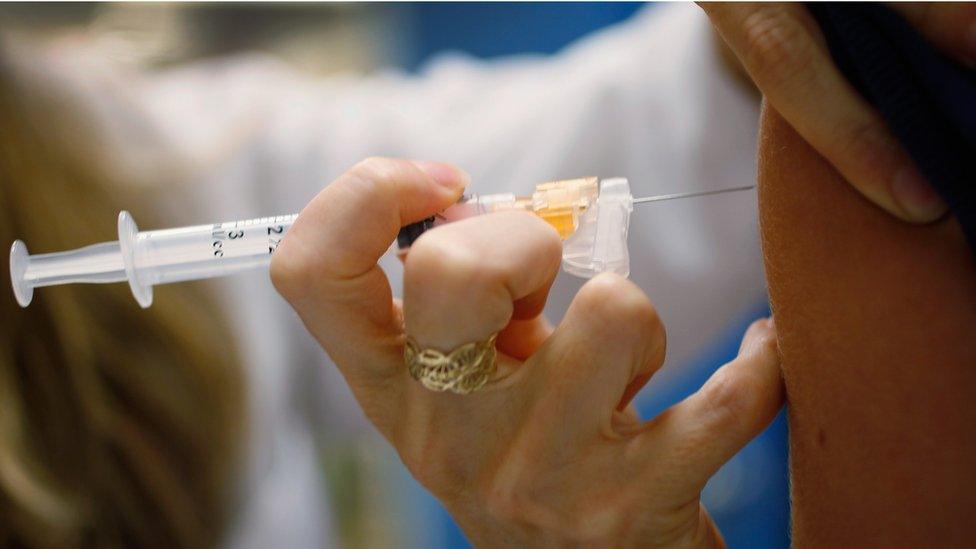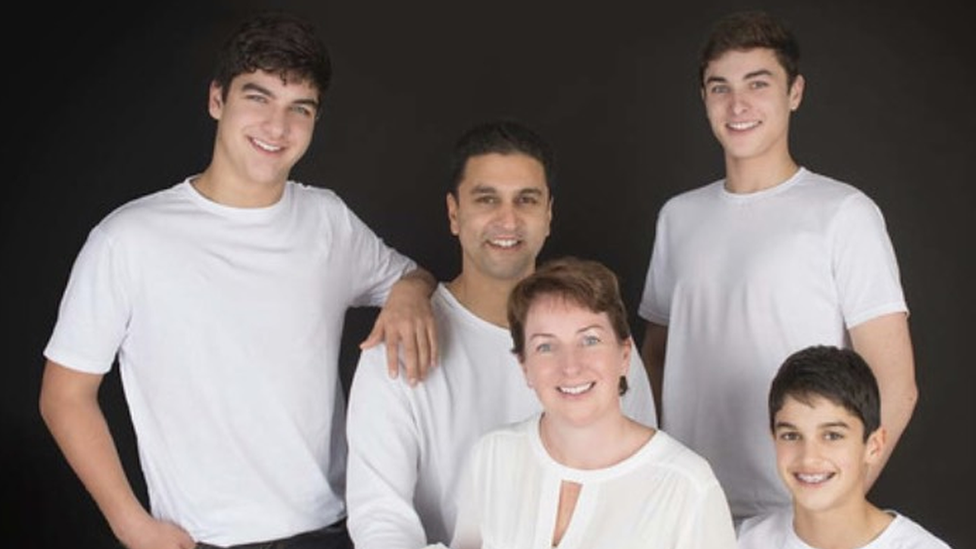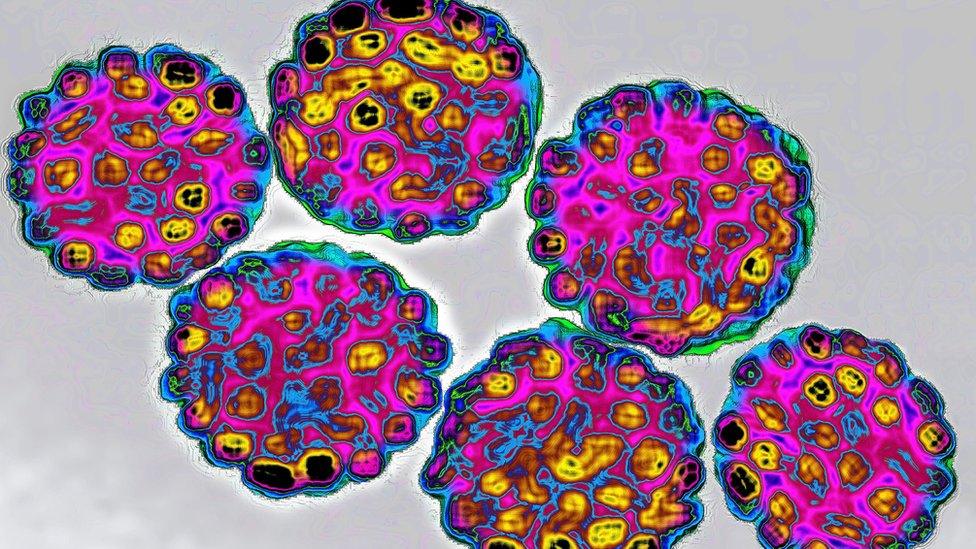HPV jab will be given to boys, government says
- Published

A jab that protects against a virus that causes cervical cancer will be given to boys aged 12 to 13 in England.
The policy decision brings England into line with Scotland and Wales.
HPV vaccine is already routinely offered to girls of the same age at secondary school and is free up until they turn 18.
Experts and campaigners have been calling for equal access to the jab, which can also guard against oral, throat and anal cancers.
HPV is the name given to a large group of viruses, which can be caught through any kind of sexual contact with another person who already has it.
Doctors say most HPV infections go away by themselves, but sometimes infections can lead to a variety of serious problems.
For boys, this includes cancer of the anus, penis, mouth and throat.
The vaccine has been offered to girls since 2008 as part of the NHS childhood vaccination programme, with boys being said to benefit through herd protection.
But there is still a risk of infection in those who go on to have sex with other men or with women who have not been vaccinated.
Thousands of boys in England are expected to be vaccinated under the programme each year, which is likely to start from 2019-20.
Girls aged 12 to 13 in Northern Ireland are also eligible for the vaccine, but no decision has been taken on whether to make it available to boys living there.
Dr Mary Ramsay, Head of Immunisations at Public Health England, said: "This extended programme offers us the opportunity to make HPV related diseases a thing of the past and build on the success of the girls' programme, which has already reduced the prevalence of HPV 16 and 18, the main cancer-causing types, by over 80%.
"We can now be even more confident that we will reduce cervical and other cancers in both men and women in the future."
Shirley Cramer CBE, Chief Executive, Royal Society for Public Health, said: "It is imperative that the gender-neutral programme is implemented by September 2019 to ensure as many people as possible reap the benefits."
- Published2 May 2018

- Published2 May 2018
